 W
WBartaman Bharat is a Bengali language essay written by Indian Hindu monk Swami Vivekananda. The essay was first published in the March 1899 issue of Udbodhan, the only Bengali language magazine of Ramakrishna Math and Ramakrishna Mission. The essay was published as a book in 1905 and later it was compiled into the fourth volume of The Complete Works of Swami Vivekananda.
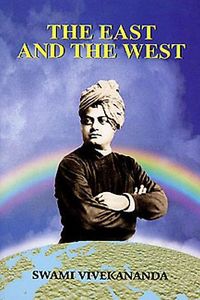 W
WThe East and the West or Prachya o Paschatya is a book written by Swami Vivekananda. In this book Swami Vivekananda made a comparative study of eastern and Western cultures.
 W
WThe Hymn of Samadhi or A Hymn of Samadhi was a song written by Swami Vivekananda. The song was originally written in Bengali as Nahi surjo, nahi jyoti or Pralay. Later the song was translated into English and was added into "The Complete Works of Swami Vivekananda" as The Hymn of Samadhi.
 W
WInspired Talks is book compiled from a series of lectures of Swami Vivekananda. From mid-June to early August 1895, Vivekananda conducted a series of private lectures to a groups of selected disciples at the Thousand Island Park. a number of lectures were recorded by Sara Ellen Waldo and she then published those as a book.
 W
WJnana Yoga is a book of lectures by Swami Vivekananda as transcribed by Joseph Josiah Goodwin. The lectures were delivered mainly in New York and London. These lectures were recorded by Goodwin, a professional stenographer, who later became a disciple of Swami Vivekananda.
 W
WKali the Mother is a poem written by Hindu monk Swami Vivekananda. Vivekananda wrote the poem on 24 September 1898 when he was staying in Kashmir, on a houseboat, on Dal Lake in Srinagar. In this poem he worshipped goddess Kali.
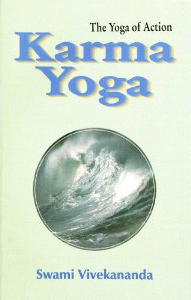 W
WKarma Yoga is a book of lectures by Swami Vivekananda, as transcribed by Joseph Josiah Goodwin. It was published in February 1896 in New York City. Swami Vivekananda delivered a number of lectures in his rented rooms at 228 W 39th Street in New York City from December 1895 to January 1896. In 1895 friends and supporters of Swami Vivekananda hired Goodwin, a professional stenographer, who transcribed some of the lectures which were later published as this book. Goodwin later became a follower of Vivekananda.
 W
WKhandana Bhava–Bandhana, or Sri Ramakrishna Aratrikam, or Sri Ramakrishna Arati,, is a Bengali song composed by Hindu monk Swami Vivekananda. The song, dedicated to the 19th-century mystic Ramakrishna, was composed in 1898. It is a prayer song, based on Raga Mishra Kalyana, Tala Ferta used in Indian classical music.
 W
WLectures from Colombo to Almora (1897) is a book of Swami Vivekananda based on his various lectures. After visiting the West, Vivekananda reached Colombo, British Ceylon on 15 January 1897. Upon Vivekananda's arrival in South India, a forty-feet high monument was built by the king of Ramnad on the spot where he landed to celebrate his achievements at the West. He reached Calcutta via Madras on 20 January 1897. Then Vivekananda travelled extensively and visited many Indian states. On 19 June (1897) he reached Almora. The lectures delivered by him in this period were compiled into the book Lectures from Colombo to Almora. The book contains reports of his 17 lectures.
 W
WMy Master is an English book combined from two lectures delivered by Swami Vivekananda in New York and England, published in 1901.
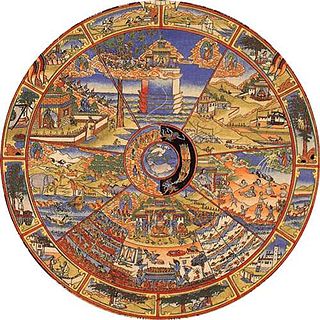 W
W"My Play is Done" is a poem written by Swami Vivekananda. He wrote the poem in the Spring of 1895 in New York. In this poem Vivekananda expressed his strong desire to return home. as he felt, the task of spreading his Master's message abroad was finally accomplished.
 W
WNachuk Tahate Shyama,, is a Bengali language poem written by Vivekananda. The poem was originally published in two issues in Vivekodayam in 1904. The poem was later included in the second volume of The Complete Works of Swami Vivekananda. The long poem relates to one’s surrender to the Hindu goddess Shyama or Kali, and is also interpreted as "Let Kali dance there" a poem dedicated to Kali.
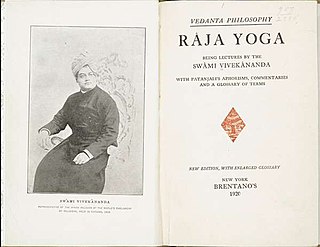 W
WRaja Yoga is a book by Swami Vivekananda about "Raja Yoga", his interpretation of Patanjali's Yoga Sutras adapted for a Western audience. The book was published in July 1896. It became an instant success and was highly influential in the Western understanding of yoga.
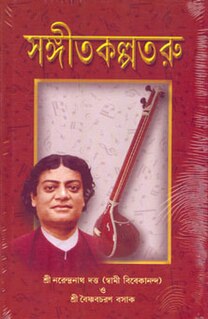 W
WSangeet Kalpataru is a Bengali language song anthology edited and compiled by Swami Vivekananda and Vaishnav Charan Basak. The book was first published in August or September 1887 from Arya Pustakalaya, Calcutta. In 2000, the book was reprinted by the Ramakrishna Mission Institute of Culture. It was edited with a critical introduction by Dr Sarbananda Choudhury.
 W
WThe Song of the Sannyasin is a poem of thirteen stanzas written by Swami Vivekananda. Vivekananda composed the poem in July 1895 when he was delivering a series of lectures to a groups of selected disciples at the Thousand Island Park, New York. In the poem he defined the ideals of Sannyasa or monastic life.
 W
WTo the Fourth of July is an English poem written by Indian monk and social reformer Swami Vivekananda. Vivekananda wrote the poem on 4 July 1898 on the anniversary of the United States' independence.